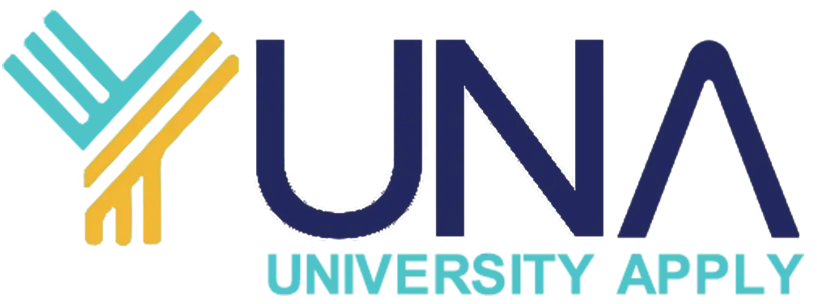Home / Bachelor

International Bachelor applications to all Turkish universities are managed by  and can guide you through the entire university application process.
and can guide you through the entire university application process.
Each Turkish University sets its own admission criteria and decides which applicants meet those criteria. Therefore, applications by degree-seeking international students to an Bachelor program must be made directly to the Student İnternational Office of the university.
Everyone is welcomed to study in Turkey as Turkish universities charge relatively affordable tuition fees and the quality of education is recognizable of international standard.
In order to gain admission into any of the Turkish universities, it is expected of international applicants to satisfy certain qualification requirements. But the focus here basically is on the requirements for international applicants going in for Bachelor programs.
For a first degree, most international students study a four-year Bachelor degree, featuring a combination of seminars, workshops and lectures made up of different modules. Certain modules are optional, and as such students can tailor study to what they are most interested in.
Please keep in mind that enrolling more than one Bachelor program at the same time is not possible.
Bachelor program-requirements-lists in most Turkish universities invariably are all similar. But when it comes to Bachelor programs, the requirements for admission are decided on by the individual department to which the student directly applies and not by the general institutional administration.
In most cases, some departments will request to meet with the applicant for a personal interview before deciding on whether the applicant will be admitted. Every international applicant must submit a certified copy of a higher school certificate or the equivalent. This is, of course, to demonstrate that he/she satisfactorily graduated from secondary school. This proof must be supported with other necessary documents bordering on transcripts or even detailed mark sheets; this should be forwarded to the Turkish university of the applicant’s choosing.
Detailed information on Bachelor program admission requirements in Turkish universities.
 Higher school diploma
Higher school diploma
 Higher secondary school certificate
Higher secondary school certificate
 General certificates of secondary education (GCSE)
General certificates of secondary education (GCSE)
 Higher secondary certificate
Higher secondary certificate
 School leaving certificate
School leaving certificate
 Testimonial
Testimonial
 High school learning certificate
High school learning certificate
 BACCALAUREATE
BACCALAUREATE
Most universities usually base their admissions decisions on a student’s academic record and applicable test scores, such as TOEFL, the GRE/GMAT or SAT.

 Online Application Form
Online Application Form Valid Passport Copy or Birth Certificate
Valid Passport Copy or Birth Certificate
 High School diploma
High School diploma
 An official transcript
An official transcript
 A statement of purpose (Personal Statement)
A statement of purpose (Personal Statement)
 An updated resume (Cv)
An updated resume (Cv)
 Reference letters (Some universities require recommendation letters to be received from your professors about your qualities.)
Reference letters (Some universities require recommendation letters to be received from your professors about your qualities.)
 Entrance Exam Scores (Additionally, not all but some universities will ask for good scores on either YOS, Abitur, the ACT or the SAT, depends on each university.)
Entrance Exam Scores (Additionally, not all but some universities will ask for good scores on either YOS, Abitur, the ACT or the SAT, depends on each university.)
 Language Proficiency Score (The required score from language exams will still depend on the school to which applicant applies. Students who are not able to take one of the international language tests (TOEFL, IELTS, PEARSON etc.) or national language tests (YDS, E-YDS, YÖKDİL) may take the university's proficiency test upon arrival. Those who fail the proficiency test must take the Language program of the university before beginning the academic study. This preparatory year is not included in the total number of years of study required for graduation. For further information on application procedures please contact the Admissions Office of the respective university.)
Language Proficiency Score (The required score from language exams will still depend on the school to which applicant applies. Students who are not able to take one of the international language tests (TOEFL, IELTS, PEARSON etc.) or national language tests (YDS, E-YDS, YÖKDİL) may take the university's proficiency test upon arrival. Those who fail the proficiency test must take the Language program of the university before beginning the academic study. This preparatory year is not included in the total number of years of study required for graduation. For further information on application procedures please contact the Admissions Office of the respective university.)
 Written exams and/or interviews (In addition to the unBachelor xaminations, departments may require additional admission examinations or interviews that are periodically announced by the office of the pertinent unBachelor rogram.)
Written exams and/or interviews (In addition to the unBachelor xaminations, departments may require additional admission examinations or interviews that are periodically announced by the office of the pertinent unBachelor rogram.)
 Having enlisted all the necessary requirements for enrolling in an unBachelor rogram in any Turkish university.
Having enlisted all the necessary requirements for enrolling in an unBachelor rogram in any Turkish university.
Generally, admission calendars for most turkey universities are the same. Intake periods for admission start in June to end of August.
Most universities encourage international students to contact them at least one year before they plan to enter that University. Then they could have a plenty of time to fulfil the requirements on time.
International applicants who have a high school diploma equivalent to Turkish diplomas and who meet the application criteria stated above may apply for an unBachelor rogram in Turkey. Applicants must complete high school diploma programs by the admission period at the latest.
By estimate, there are around 206 universities in Turkey, most of which are state universities while the rest are private universities.
Applying for programs in any of the existing Turkish universities is quite an easy process owing to the availability of a good number of useful admission inquiry websites that can offer an aspiring applicant a good guide  , in a nutshell, below are the basic steps to follow when applying for programs in Turkish universities;
, in a nutshell, below are the basic steps to follow when applying for programs in Turkish universities;
 With the aid of websites such as the one provided above or through some local admission processing
With the aid of websites such as the one provided above or through some local admission processing  representative agent in your country, find a suitable unBachelor egree program you would love to study in Turkey.
representative agent in your country, find a suitable unBachelor egree program you would love to study in Turkey.
 Put together all the required documents under the advisement of the agent handling your admission processing or you can as well follow the detailed requirement information provided by the website.
Put together all the required documents under the advisement of the agent handling your admission processing or you can as well follow the detailed requirement information provided by the website.
 Submit your application through
Submit your application through  platform online admission system on the website
platform online admission system on the website
 After completing your application, it is important to submit all the required documents into
After completing your application, it is important to submit all the required documents into  account. Ensure documents arrive intact before the admission deadline. Ascertain deadline in the admission calendar
account. Ensure documents arrive intact before the admission deadline. Ascertain deadline in the admission calendar
 If your application into the university of your choosing eventually turns out successful, the university will issue acceptance documents which will aid your visa application.
If your application into the university of your choosing eventually turns out successful, the university will issue acceptance documents which will aid your visa application.
 After completing the above steps successfully, the next thing is to put things in order with respect to your traveling and accommodation.
After completing the above steps successfully, the next thing is to put things in order with respect to your traveling and accommodation.
Obtaining your bachelor’s degree used to be a way for students to stand out from others in a highly competitive job market. As of 2015, however, one in three adults have earned a four-year degree, making it common to be one of many in a pool of job applicants with this educational achievement.
Does this mean that a bachelor’s degree does not have value? Is it even important in today’s world of start-up entrepreneurs and self-employed business owners? Is it a worthwhile investment considering that student loan debt may be involved?
The answer, ultimately, is that it really depends on you. Your unique life goals, including your career aspirations, will determine if the bachelor’s degree is a good fit.
For many people, though, earning a college degree is important to their success in today’s market. Let’s look at the benefits of earning a bachelor’s degree, and how your personal educational goals and lifestyle choices should be considered in making this major decision.
 Increased Access to Job Opportunities
Increased Access to Job Opportunities
Having a bachelor’s degree opens up rewarding opportunities that might have otherwise been inaccessible. College graduates see 57 percent more job opportunities than non-graduates, and it is estimated that, by 2022, two-thirds of all jobs will require postsecondary education regardless of position. A degree enables you to qualify for these additional opportunities and offers you more flexibility in where you choose to work.
Not only are there more jobs available to degree holders than high school graduates, but the existing jobs are also more accessible. Over the past year, two million new jobs posted online per quarter require a bachelor’s degree or higher. For job seekers, these online job postings are a primary tool for finding and applying to available roles. While more than 80 percent of all job openings for workers with a bachelor’s degree or higher are advertised online, to connect with prospective employers.
Pursuing a university education also expands your access to opportunities by connecting you to a lifelong network of colleagues, advisors, professors, and mentors. Over the course of your career, this network can open doors and connect you to industry leaders with whom you can share ideas and explore new ventures.
 Preparation for a Specialized Career
Preparation for a Specialized Career
As the world changes, the job market changes with it. Technology, education, and health are three of the most rapidly growing fields for a good reason; they evolve so often that only the most accomplished individuals can do the work. Getting a bachelor’s degree will help you learn the specific skills and habits needed to make a living in these areas.
While not all degrees offer a direct route to a particular job (English, philosophy, or political science, for example), many are created with a specific career path in mind. An educational degree, for example, is designed as a funnel for teaching jobs; some health degrees also have very specialized jobs waiting at the end for those who complete them.
 Increased Marketability
Increased Marketability
Having a bachelor’s degree will keep you in demand as the need for skilled, college-educated workers continues to rise.
Over 80 percent of jobs in four of the fastest-growing occupations—healthcare, STEM, education, and government services—demand postsecondary education. Thus, it’s estimated that, by 2022, there will be 15 million available jobs requiring bachelor’s degrees.
On your path to earning a bachelor’s degree, you’ll gain skills that will give you a competitive advantage in the job market. Today’s employers are most interested in applicants with exceptional communication, leadership, critical thinking, problem-solving, and analytical skills.
In university, you’ll have access to rigorous coursework and experiential learning opportunities that will arm you with these skills to make you more attractive to employers.

Bachelor
+90 506 691 1010
info@yunaapply.com
www.yunaapply.com
This Form Will Be Sent By Whatsapp.

